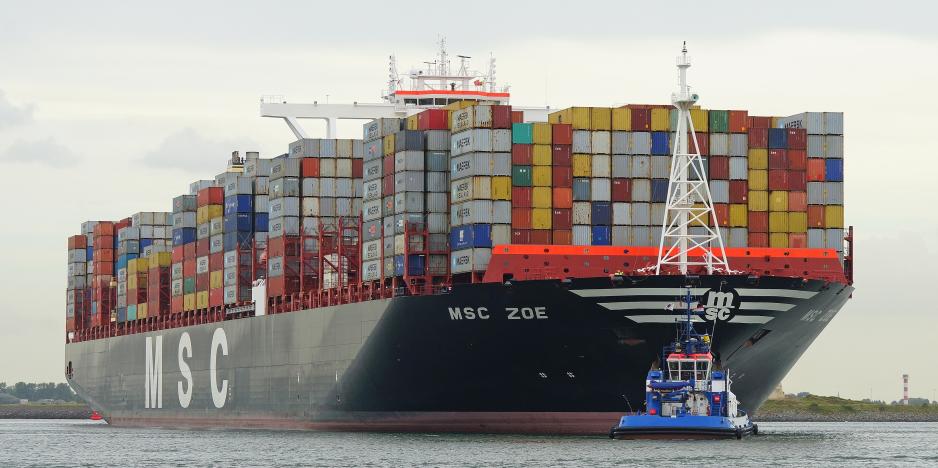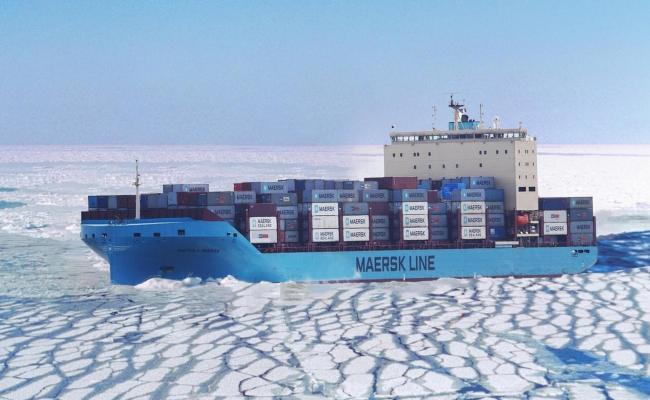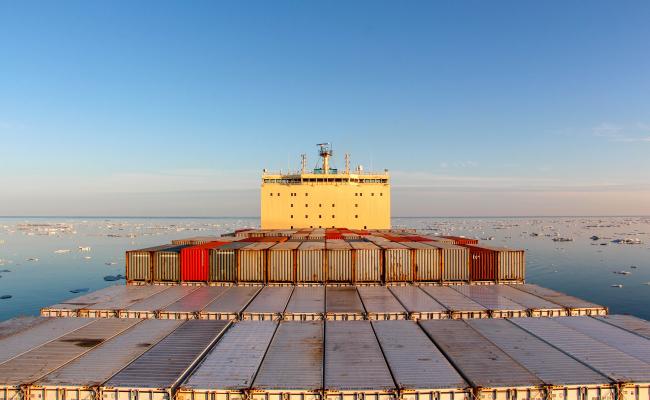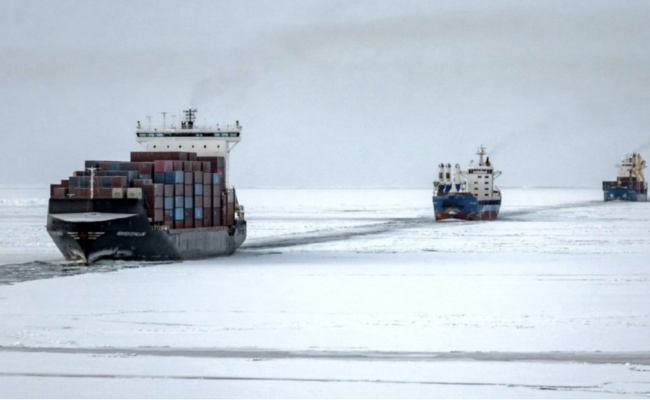World’s Largest Container Shipping Company MSC Again Rules Out Arctic Shipping, As Chinese Companies Push Ahead

Containership MSC Zoe in 2015. (Source: Kees Torn via Wikimedia)
The same week a Chinese container ship is attempting to make a record-setting Northern Sea Route transit from China to the UK in 18 days, European operator MSC reaffirmed its commitment to not ship via the Arctic. The company cited environmental concerns and lack of infrastructure as key reasons.
Arctic shipping trends along Russia’s Arctic Northern Sea Route remain starkly bifurcated between Western and Chinese operators.
This week the world’s largest container shipping operator Mediterranean Shipping Company (MSC) reaffirmed its commitment to avoid the Polar routes.
Just days prior Chinese company Sea Legend launched a new Arctic Express service connecting ports throughout China to destinations in the UK, Netherlands, Germany and Poland.
First time
Sea Legend’s Istanbul Bridge departed from Ningbo, China on September 22 and is expected at the UK’s largest terminal in Felixstowe just 18 days later on October 10. A traditional routing via the Suez Canal would take 40-50 days.
This represents the first time a company is testing out a liner-type service connecting several destinations at each end of the voyage.
The Northern Sea Route remains underdeveloped for commercial shipping
In addition to MSC several other European or Western operators previously said they had no intentions to ship via the Arctic, including Maersk and Hapag Lloyd; though Maersk conducted a one-off voyage in 2018.
Concerns
According to MSC “the Northern Sea Route remains underdeveloped for commercial shipping since safe navigation and transit are not assured.”
The company also lists concerns over the impact of increased traffic on the region’s fragile ecosystem and sea ice, as a reason for steering clear.
In addition commercial shipping operations may negatively impact necessary traffic to supply local and indigenous communities by congesting shipping lanes, the company continued.
MSC also does not see operational necessity to route transits via the Arctic.
Also read (The text continues)
“We have the capacity and means to safely and reliably transport customer cargo globally without using the Northern Sea Route,” MSC concluded.
Increasing environmental concerns
Environmental concerns have increasingly come to the forefront as Russia is shipping crude oil via the Arctic in tankers without ice protection. And even for general cargo or container vessels, where the risk of large-scale spill is muted, there remains uncertainty over the level of their impact.
According to environmental advocates at the Clean Arctic Alliance the vessel’s operator has not published what type of fuel it is using during its Arctic transit. Heavy fuel oil, the cheapest and dirtiest type of marine fuel, emits quantities of black carbon into the local environment.
While the fuel is in the process of being phased out under International Maritime Organization regulations, existing loopholes are set to continue until the end of the decade.
In 2024 the Arctic saw a record-number of transits totalling 97 voyages carrying 3.1 tons. This year is on track to match or surpass those figures, including around 20 container ship voyages connecting Europe to Asia.
Sea Legend management referenced the Arctic region’s stability as an attractive quality over more dangerous or longer routings.
“[The NSR] passes through politically and economically stable regions, reducing risks such as piracy, congestion and conflict spillover," the company’s COO, Li Xiaobin, said.
The Suez Canal routing has seen repeated attacks on commercial ships from Houthi rebels, with the latest casualty occurring this week when Dutch freighter Minervagracht was struck by cruise missiles in the Gulf of Aden.




